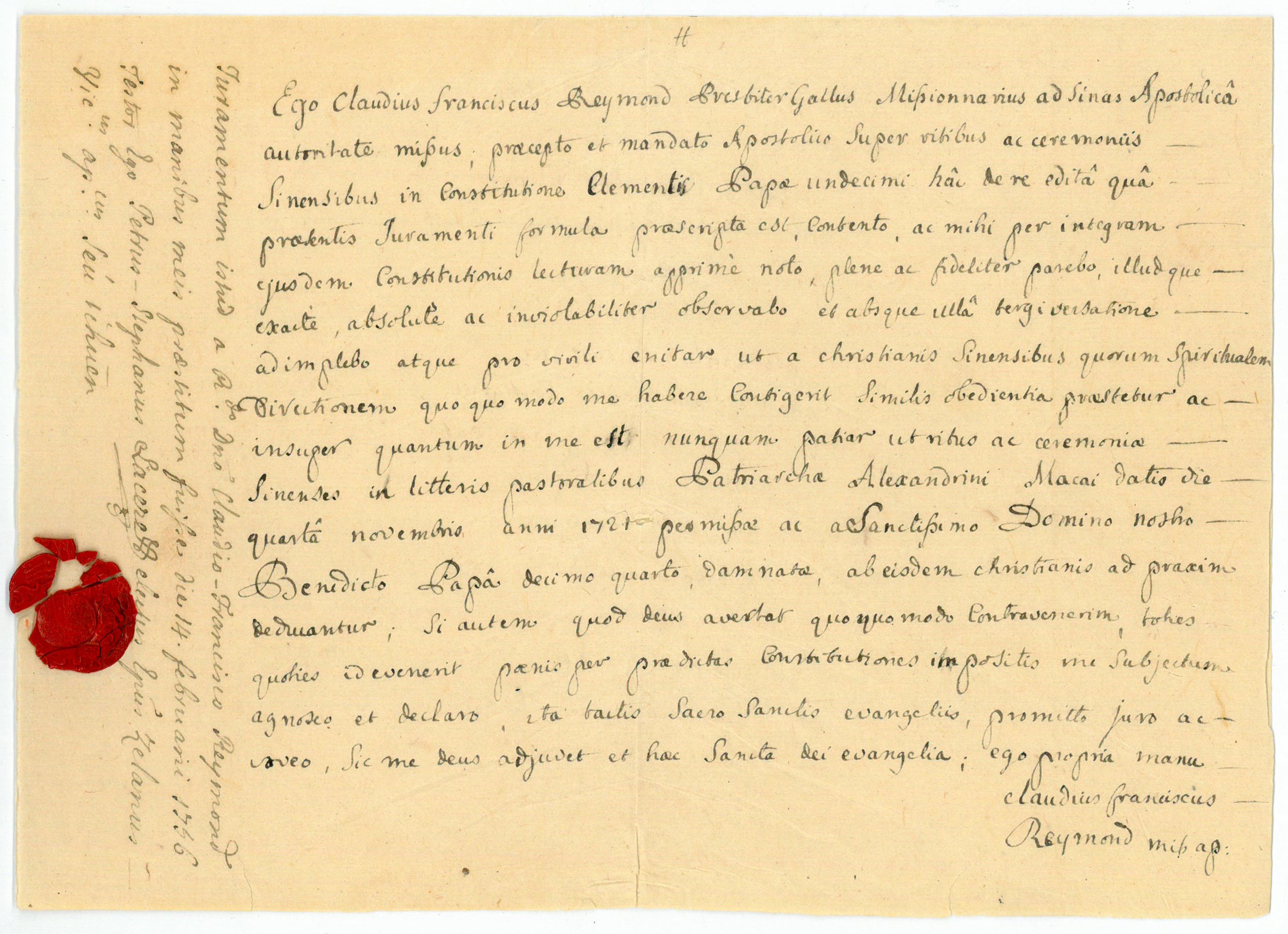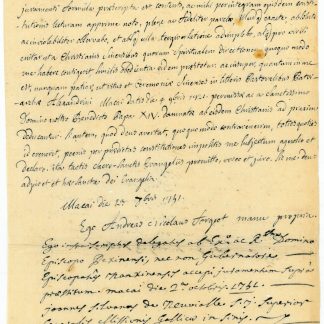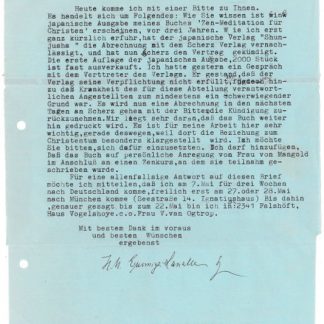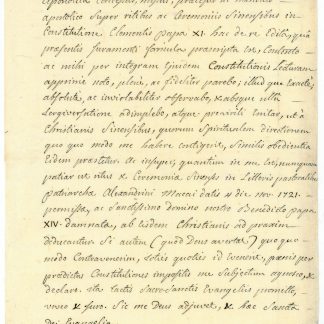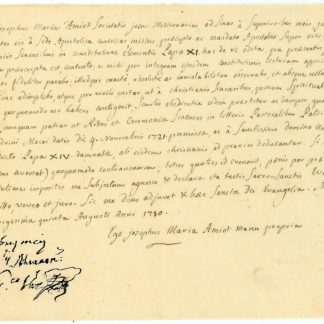Autograph document signed. Co-signed by Pierre Lacerre, designated Vicar Apostolic of Sichuan.
Oblong 8vo. 1 p. With traces of seal. In Latin.
€ 2.800,00
An oath renouncing the practice of the Chinese rites, taken by the prominent member of the Paris Foreign Missions Society (M.E.P.) and later bishop as required by the Papal Bull "Ex Quo Singulari" (1742). The oath was sworn on the Bible, and a signed autograph ("manu propria") of the formula had to be produced as evidence. Most of these documents are co-signed by church officials or superior friars as witnesses to an oath sworn in their presence ("in manibus meis"), in this case the designated Vicar Apostolic of Sichuan Pierre Lacerre, M.E.P.
Ordained priest in 1747, Claude-François de Reymond entered the M.E.P. in 1753 and was sent to China that same year, his first posting being in Guangdong. In 1755 he was chosen by the M.E.P. to succeed Pierre Lacerre as designated Vicar Apostolic of Sichuan, as it became clear that Lacerre would decline his elevation. When he was accepted in Rome, Reymond returned to Macau and was appointed Vicar Apostolic of Sichuan and titular Bishop of Cinna in February 1756, only days after he wrote the document at hand that is co-signed by Lacerre as "elected Bishop of Zela and Vicar Apostolic of Sichuan". At this point, he was already gravely ill and would die only a month later. Reymond's provicar François Pottier would eventually succeed him as Vicar Apostolic of Sichuan and was an active missionary in the province, despite the severe persecution of Christians.
During the early years of their mission to East Asia, the Jesuits led by Matteo Ricci accommodated Catholicism to Chinese customs and Confucian practice in important ways, both for political reasons and in the hope of attracting more converts. Criticism of this syncretism is as old as the Chinese rites themselves, and Ricci's direct successor Niccolò Longobardo attempted to change course, which led to his replacement as provincial. When Dominican and Franciscan missionaries entered China, they reported to Rome critically on the Jesuit practices. A first condemnation was decreed by Pope Clement XI in 1704 and confirmed in the 1715 Bull "Ex Illa Die". In reaction to the condemnation, the Kiangxi Emperor, who had initially tolerated the Christian missionaries and enjoyed especially good relations with the Jesuits, officially forbade Christian missions in China. In 1721 Carlo Ambrosio Mezzabarba, the Latin Patriarch of Alexandria, was sent as a Papal legate to Macau and Beijing. Despite the concession of "eight permissions" regarding the practice of the Chinese rites, officiated in a pastoral letter to the missionaries from 4 November 1721, the Emperor did not revoke the ban. Finally, in "Ex Quo Singulari", Pope Benedict XIV re-affirmed the Bull of 1715 and required all missionaries in the region to take the oath renouncing the practice of Chinese rites.
A transcription and translation of the document are available on request.
Slightly creased.

